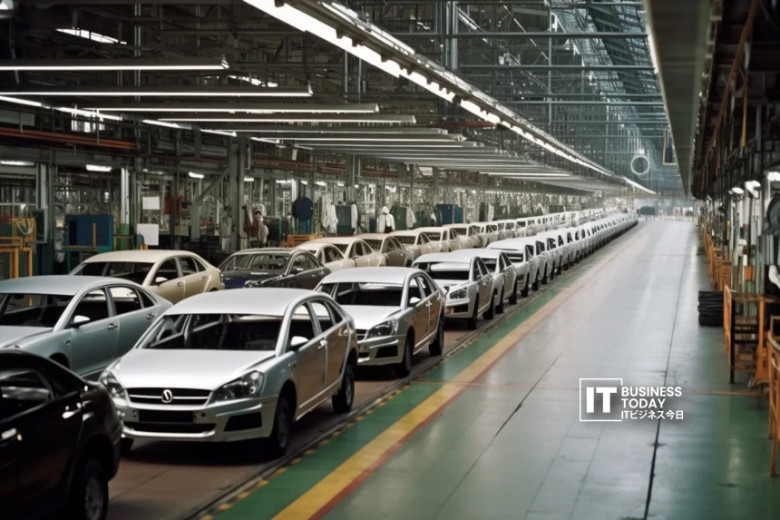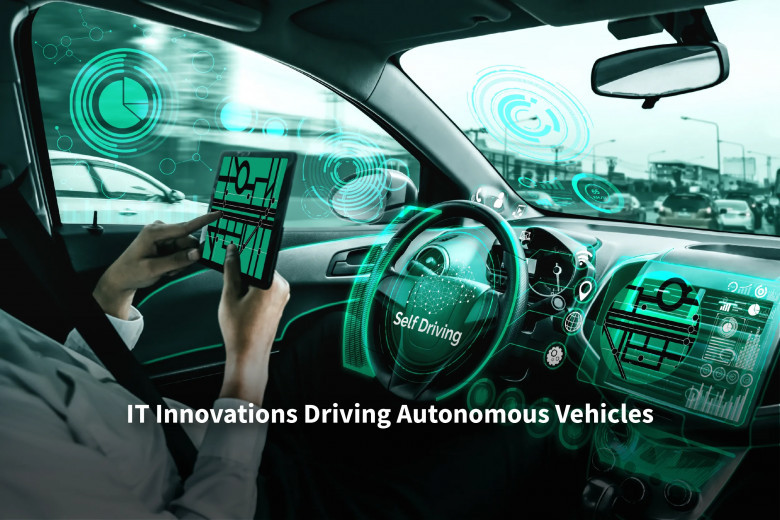views
For decades, Japan has been a global powerhouse in the automotive industry, home to iconic brands like Toyota, Honda, Nissan, Subaru, Mazda, and Mitsubishi. But as the global auto sector undergoes a dramatic transformation—fueled by electrification, automation, connectivity, and sustainability—Japan is once again leading innovation, redefining what mobility means in the 21st century.
Today, Japan’s automotive industry isn’t just building vehicles—it’s building an integrated, intelligent mobility ecosystem. From solid-state battery breakthroughs and hydrogen-powered vehicles to AI-driven factories and autonomous transport, Japan is revolutionizing the future of automotive design, production, and user experience.
🚗 Electrification: Accelerating Toward a Zero-Emission Future
One of the most transformative shifts in the auto industry is the global pivot to electric vehicles (EVs). Japan is not just adapting—it’s innovating:
🔋 Solid-State Battery Leadership
-
Toyota, in partnership with Panasonic and the Japanese government, has made significant strides in solid-state battery development, aiming for mass production by 2027. These batteries promise:
-
Faster charging (10 minutes or less)
-
Longer range (up to 1,200 km)
-
Enhanced safety and lower degradation
-
⚡ Affordable and Compact EVs
-
Nissan has launched a new lineup of urban EVs tailored for city driving, focusing on affordability and efficiency
-
Honda is investing in micro-mobility EVs, ideal for Japan’s aging population and narrow urban streets
🟢 Government Support
-
Japan’s “Green Growth Strategy” targets 100% new car sales to be electric or hybrid by 2035
-
Subsidies, charging infrastructure investments, and regulatory frameworks are fueling rapid adoption
🌬️ Hydrogen Innovation: An Alternative Zero-Emission Path
While most countries focus on battery EVs, Japan continues to champion hydrogen fuel cell technology as a complementary clean mobility solution:
-
Toyota Mirai and Honda Clarity are among the world’s few commercially available hydrogen cars
-
Japan is building the world’s most advanced hydrogen fueling infrastructure, with over 150 stations nationwide
-
Fuel cells are also being deployed in buses, trucks, and trains, reducing emissions in commercial transport sectors
Japan sees hydrogen not just as a fuel—but as a clean energy carrier that can help decarbonize mobility, logistics, and power grids simultaneously.
🧠 Autonomous Driving and AI Integration
Japan is advancing toward autonomous mobility not only through in-vehicle AI but also through city-wide smart infrastructure:
🚘 Robotaxis and Driverless Transit
-
SoftBank’s MONET Technologies and Toyota’s e-Palette platform are enabling autonomous shuttles for smart cities and last-mile delivery
-
Tokyo and Yokohama have launched autonomous bus trials on fixed routes, especially for elderly transport
🧠 AI for Safety and Control
-
Nissan’s ProPILOT Assist and Subaru’s EyeSight systems use cameras and radar to support lane keeping, adaptive cruise control, and emergency braking
-
Japan is leading in Level 2 and Level 3 automation, combining AI with strict safety standards
🏙️ Vehicle-to-Infrastructure (V2I) Technology
-
With Japan’s advanced 5G rollout, cars are being connected to traffic signals, road sensors, and emergency systems to optimize flow and prevent accidents
🏭 Smart Manufacturing: Industry 5.0 Comes to Auto Plants
Japanese auto manufacturing is entering the Industry 5.0 era, combining advanced robotics with human expertise for greater efficiency and flexibility:
-
AI-driven quality control systems at Mazda and Toyota plants detect defects in real-time using vision systems
-
Collaborative robots (cobots) assist line workers in assembly and testing, reducing fatigue and increasing precision
-
Digital twins simulate production environments, enabling predictive maintenance and faster retooling for new models
Japan’s Monozukuri philosophy (craftsmanship + innovation) continues to drive quality and excellence, even in highly automated environments.
🧩 Connected Cars and Data Ecosystems
The car is no longer an isolated machine—it’s a connected platform, and Japan is investing heavily in automotive IoT, edge computing, and software-defined vehicles:
📱 In-Vehicle Infotainment and Telematics
-
Sony Honda Mobility Inc., a joint venture, is working on next-generation EVs with immersive entertainment, cloud-based AI, and real-time diagnostics
-
Connected platforms allow users to:
-
Update vehicle software remotely (OTA updates)
-
Monitor vehicle health via mobile apps
-
Enable subscription-based features (e.g., enhanced driving modes)
-
🌐 Cybersecurity and Privacy
-
Japanese automakers are deploying robust encryption and zero-trust frameworks to ensure data integrity and driver safety in an increasingly connected world
🌱 Sustainability and Circular Economy
Environmental responsibility is no longer optional—it’s a priority in Japan’s automotive vision:
-
Recyclable materials: Toyota and Nissan are developing EVs using recycled plastics and sustainable materials like kenaf fiber
-
Carbon-neutral factories: Mazda’s Hiroshima plant uses solar power and hydrogen boilers to reduce emissions
-
Battery recycling: Japan is scaling lithium recovery facilities and second-life battery reuse programs
This circular approach is aligned with Japan’s goal to achieve net-zero emissions by 2050.
🧪 Startups and Innovation Clusters
Japan’s automotive transformation is being powered not just by traditional giants, but also by dynamic startups and R&D hubs:
-
Tier IV (Nagoya) is a global leader in open-source autonomous vehicle software
-
WHILL designs personal mobility devices for the elderly and disabled
-
Nexty Electronics, a Denso subsidiary, is creating advanced vehicle control systems for autonomous and electric platforms
Incubators and university labs in Tokyo, Osaka, and Nagoya are producing a new wave of AI, battery, and mobility-focused entrepreneurs.
🌏 Global Partnerships and Export Strategy
To stay globally competitive, Japanese automakers are forming strategic alliances:
-
Toyota partners with BYD and CATL to co-develop batteries and EV platforms for Asia
-
Nissan is deepening its collaboration with Renault and Mitsubishi on electrification and software
-
Japanese components and software (e.g., ADAS, AI chips, sensors) are increasingly in demand by global OEMs
Japan aims to be not only an exporter of cars, but a supplier of next-gen mobility solutions worldwide.
📈 Challenges Ahead
Despite its leadership, Japan’s auto industry faces headwinds:
-
Global EV competition from China, Tesla, and emerging players
-
High R&D costs in battery and software innovation
-
Slow domestic EV adoption compared to Europe and China
-
Supply chain vulnerabilities, especially for rare earths and semiconductors
In response, Japan is:
-
Diversifying supply sources
-
Partnering with governments for EV infrastructure
-
Investing in domestic chip production (via Rapidus and TSMC Japan)
-
Providing consumer EV subsidies and tax incentives
🔮 Vision 2035: Japan’s Auto Industry Reimagined
By 2035, Japan envisions:
-
100% of new vehicle sales to be electrified (EV, hybrid, hydrogen)
-
Fully autonomous vehicles in commercial and urban transport
-
Interoperable smart mobility platforms, connecting cars with cities, homes, and users
-
Carbon-neutral factories and logistics chains, powered by renewables and hydrogen
✅ Conclusion: Precision, Innovation, and Purpose
Japan’s revolution in the automotive industry is not just about making better cars—it’s about creating a cleaner, safer, more connected world. With a fusion of traditional engineering excellence and cutting-edge innovation, Japan is once again redefining what mobility can and should be in a fast-changing global landscape.
From self-driving hydrogen vehicles to emotionally aware AI companions on wheels, the Japanese car is becoming a central node in the smart society of tomorrow—not just a mode of transport, but a platform for human empowerment.





Comments
0 comment